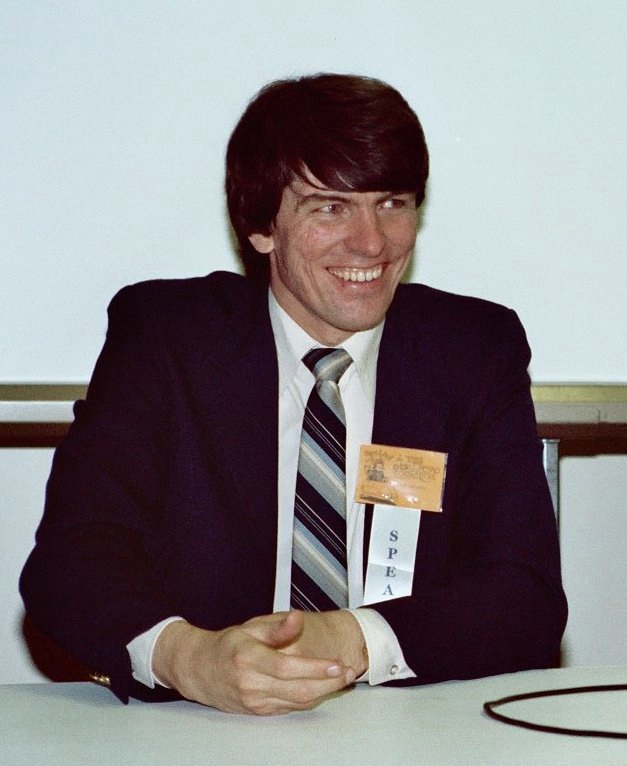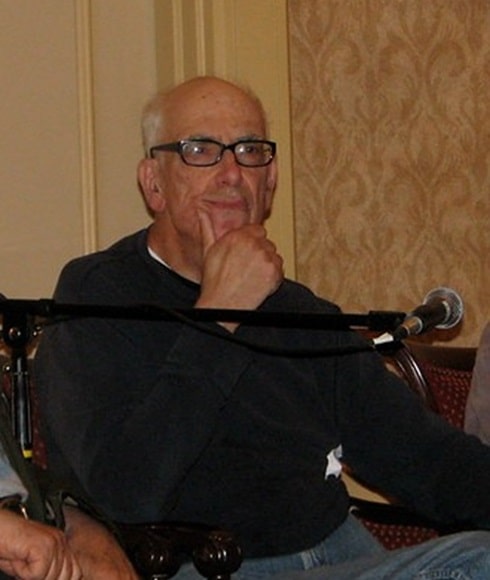
Left: The memorial booklet for Howard Andrew Jones given to attendees at the February
22nd Celebration of Life. Right: Sean CW Korsgaard gives his eulogy for Howard.
Foreground: Christopher Rowe, Cinda Hocking, John C. Hocking. Photo by John O’Neill
A Celebration of Life for Howard Andrew Jones (HAJ) was just held in Evansville, IN, Feb 22, 2025. The event gathered friends, family, and over a dozen author colleagues. Numerous online memorials and tributes had been posted leading up to this. Links to many are listed at the bottom of the post; reading these reveals wonderful insights. This article aims to honor HAJ slightly differently by echoing excerpts from his blogs intermixed with remembrances and emphasizing the importance of community.
It struck me that when discussing HAJ, there are always references to REH (Robert E. Howard, indisputable “Father of Sword & Sorcery Genre”). Whereas REH kicked off the genre with his heroes in the 1920-30s (Conan, Bran Mak Morn, Kull, etc.), a hundred years later, the other Howard, our dear HAJ, championed S&S, wrote S&S, and built a community of S&S readers & writers.
You may already know that HAJ edited the online Flashing Swords ezine (links to internet archives below), grew Black Gate in print and online, edited the Harold Lamb series, led the Tales from the Magician’s Skull Magazine, and wrote copious amounts of pulp and fantasy fiction (Asim & Dabir, Ringsworn, Pathfinder, Hanuvar). He did all that while immersing himself with authors and readers.
…
Read More Read More









